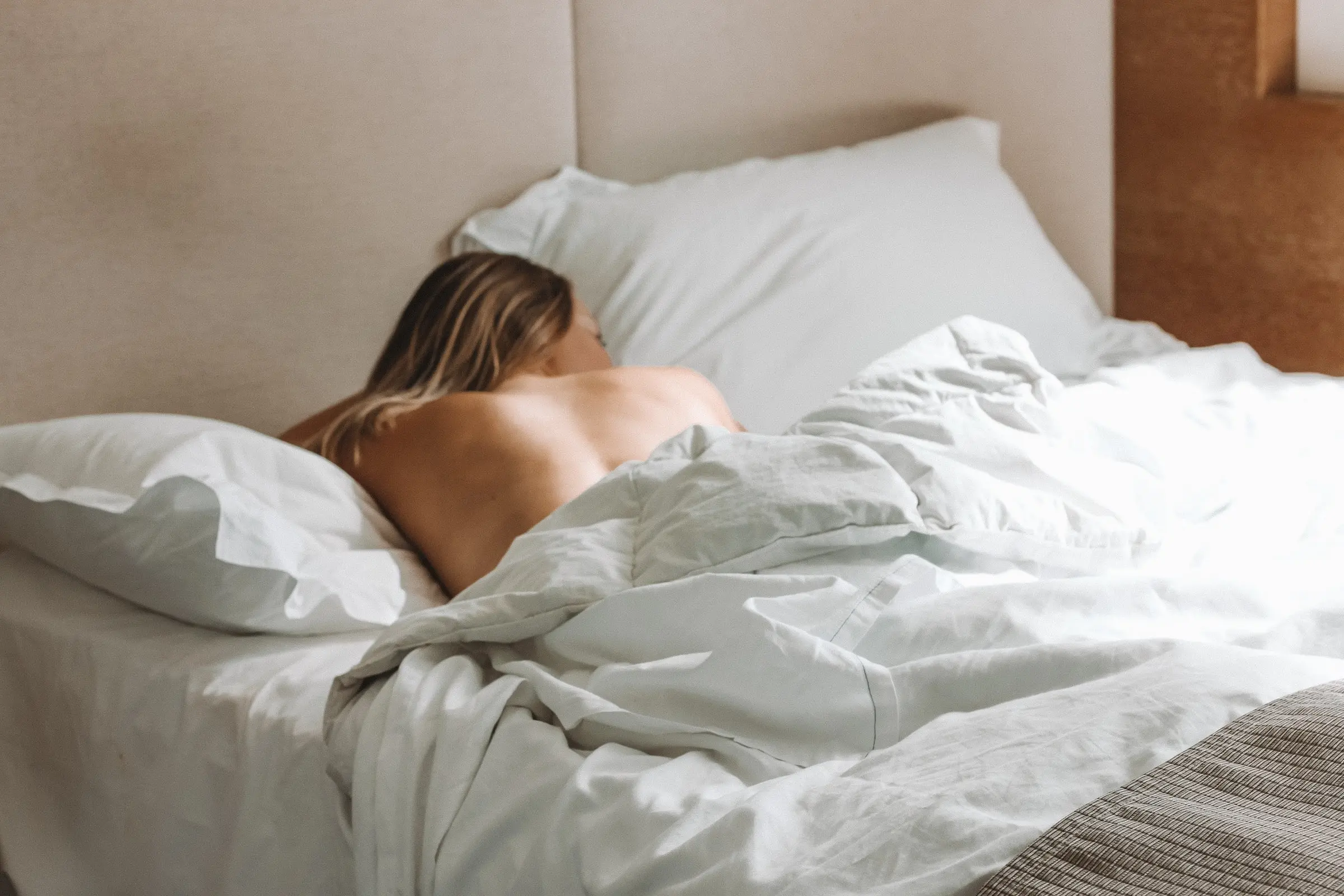- Updated :
- Published :
- Andy Reilly
Sleeping tips for a better night’s sleep in Summer
It can be hard to sleep well in the summer heat. The temperature is often unbearable, and it's challenging to get comfortable when sweating all night. With more hours of daylight, especially early in the morning, people often feel it is not worth the hassle and effort to get a whole night's sleep in the summer months.
However, the impact missing out on sleep has on people is complex, often causing problems. So, people need to ensure they are fully equipped to enjoy a good night's sleep in the summer months, and we have some tips for you.

Tips for enjoying a good night's sleep in the summer
Follow these tips to stay cool and comfortable so you can sleep through the night.
1. Keep your bedroom cool: The ideal sleep temperature is between 16-18°C. If your bedroom is too hot, use a fan or air conditioner to decrease the temperature. If you plan on opening a window to allow for ventilation, be sure to close your curtains or pull-down blinds to block the sun’s rays.
2. Use light bedding: In summer, switch to lightweight sheets and blankets made from natural fabrics like cotton or linen. These materials breathe better than synthetic fabrics and will help keep you cool in bed.
3. Sleep on your back: Sleeping on your back allows your body to distribute heat, which can help you stay cooler evenly.
4. Wear loose-fitting clothing to bed: Clothing too tight can restrict blood flow and make you feel warmer. Opt for loose-fitting sleepwear made from natural fabrics like cotton.
5. Keep a cool, damp cloth nearby: Soak a clean cloth in cold water and keep it near your bed. When you feel too warm, drape the fabric over your body or use it to fan yourself.
6. Avoid eating a big meal before bed: Eating a large meal can make you feel uncomfortably full and raise your body temperature. If you’re hungry before bed, try eating a light snack like yoghurt or fruit.
7. Avoid caffeine before bed: Caffeine is a stimulant that can make sleeping difficult. Avoid drinking caffeinated beverages like coffee, tea, or soda in the evening.
8. Exercise earlier in the day: Exercise can raise your body temperature and make sleeping harder. To avoid this, try to exercise earlier in the day.
9. Take a cool shower before bed: A cool shower or bath can help lower your body temperature and make you feel sleepy. Avoid storms that are too cold, which can cause you to feel awake and energized.
10. Wear socks that have been chilled or keep a “hot water bottle” filled with chilled water close to your feet as reducing the temperature of your feet lowers the temperature of your skin and entire body
What’s the ideal sleeping temperature?
If you are too warm, or too cold, sleeping is difficult, and this is why so many people are keen to know the ideal sleeping temperature. According to The Sleep Charity, an ideal bedroom temperature is around 16-18°C (60-65°F). Vaillant suggest that for children and pensioners, 18°C is the preferred option, giving them slightly more heat in the room than adults.
Of course, this is a matter of personal taste, so it is important to experiment and see if there is a solution which is ideal for your needs, and helps you fall asleep with a minimum of fuss and effort.
Should you use ventilation or fans?
Fans can help circulate air and keep you cool, but they won’t lower the temperature of a room. If you’re looking to lower the temperature of your bedroom, use an air conditioner or open the windows.

What bedding is best for sleeping in summer?
In summer, switch to lightweight sheets and blankets made from natural fabrics like cotton or linen. These materials breathe better than synthetic fabrics and will help keep you cool.
Some people are more than happy to go without bedding in the summer months, and if this is best for you, it is fine to do so. If you prefer to have some form of cover when you sleep, opt for a lighter tog rating, which should help keep you a little bit cooler.
Can sleeping with wet hair keep you cool?
Sleeping with wet hair can help you stay cool, but it may not be comfortable. If you sleep with wet hair, use a pillowcase that won’t absorb the moisture and makes your hair frizzy.
Dealing with noise in the summer?
Another issue aside from heat when trying to sleep in the summer months is noise coming from outside. With lighter nights and warmer evenings, more people are likely to be outside. Depending on the location of your home, you might be affected by people walking by. If you stay close to pubs or public areas, there is a strong chance there will be a lot of noise.
This might prevent you from opening your window, and depending on where your bedroom is in relation to people passing by, you might hear noise regardless of the quality of insulation.
If there is an opportunity to sleep in a quieter room, it might be best to pursue this on nights you expect there will be a lot of noise. You should also consider investing in noise cancelling headphones you can wear in bed, in the hope of quietening down noise entering your home.
It isn’t easy getting to sleep on warm nights, but the importance of being well rested means you should be proactive in falling asleep soundly. There are many ways you can achieve a good night’s sleep, and the main focus is on creating a cool environment. Your bedding has a big role to play in feeling comfortable, and if you’re looking for a great night’s sleep, we can help.




